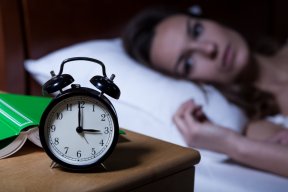
People who have insomnia may have been told that their sleeping troubles are “all in their head,” but a new study shows that this condition is driven not only by psychological factors, but biological ones as well. In the study, researchers in the Netherlands identified seven genes linked with insomnia, meaning there’s a biological component to the sleep disorder. “We hope that people will start to realize that insomnia is not ‘all in the head’ but a biological vulnerability,” said study co-author Eus van Someren, a professor of sleep at the Netherlands Institute for Neuroscience. Previous research has shown, for example, that insomnia is a risk factor for depression and that the sleep disorder is linked to a higher risk of cardiovascular disease, diabetes and obesity, according to the study, published June 12 in the journal Nature Genetics.

Insomnia seems to be one of the most common health complaints, the researchers said. Between 10 percent and 22 percent of all people are estimated to have the disorder, the researchers said. In the U.S., nearly 10 percent of adults have chronic insomnia, according to the Centers for Disease Control and Prevention. Moreover, insomnia often runs in families, which suggests that it has a genetic basis, the researchers noted. In the new study, the researchers analyzed the DNA of about 113,000 people whose average age was 57. In addition, everyone in the study was asked if they had trouble falling asleep at night, or if they woke up in the middle of the night. Those who responded to the question with “usually” were classified as having insomnia. The researchers found that seven genes were more common in people who had insomnia, meaning that these seven genes could indicate that a person has an increased risk for the sleep disorder.











